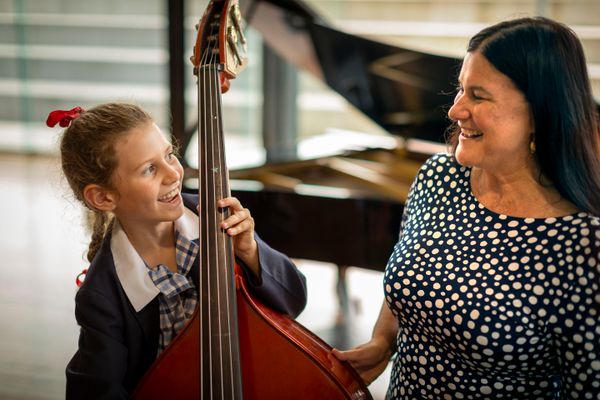Learning a musical instrument enhances our junior students’ literacy skills
We are introduced to music and singing right from the start of life and we use music to process stories, language and rhythm. Singing also strengthens neural connections for reading. If a child can hear it, they can say and sing it, and then read it and use it in more advanced written and spoken language. According to The Music Advantage, “It is easier to hear nuances in song because the rhythm is slower than speech and the distance between sounds is larger. That is why song is such an effective tool to teach and learn language.”
Being able to keep a beat is also an essential part of reading readiness. Research says that clapping in time requires universal coordination and connection between motor and sensory systems and a fine temporal ability to control the movement to be on beat.
Beat synchronisation is an external representation of a level of internal cognitive connectivity. At Toorak College, our Junior Music curriculum is centred around three areas: being tuneful, beatful and artful. These three pillars are essential for building lifelong musical skills, and also provide the necessary foundation for literacy skills and wide-ranging academic and social advantages.
“Students highly engaged in music were, on average, academically over one year ahead of the peers not engaged in School music.”

In a Toorak music lesson, we learn countless songs and rhymes engaging this universal coordination to successfully memorise, recall and extend these activities in many musical ways. This is really quite easy for our brains to engage in this type of playful activity. By the clever art of repetition, music educators often add other layers of challenge for students each time through body percussion, instrumental playing and movement. The exciting thing is that this training strengthens the neural connections making it more efficient for activities that require decoding of sound to symbol: music notation and the reading of language.
An ever-growing number of students from ELC to Year 12 participate in weekly musical instrument lessons. The benefits of continuous, multi-year music training is well-documented in neuromusical research, and in a recent study, researchers found that, “Students highly engaged in music were, on average, academically over one year ahead of their peers not engaged in school music.” The study identified evidence of positive relationships between school music participation and high school exam scores in english, mathematics, and science. How exciting it would be if every student at Toorak College learnt a musical instrument!
6 ways music helps enhance students’ literacy skills
- Decoding: Music learning assists with word decoding.
- Language Syntax: Music learning improves young readers' understanding of language syntax.
- Phonological Awareness: Music learning improves phonological awareness for specific language sounds more than direct phonological training.
- Comprehension: Music learning improves comprehension in beginner readers and those experiencing reading difficulties.
- Learn New Words: Music learning increases the speed at which children learn new words.
- Use New Words: Music learning increases the understanding of how to use new words in language.
For more information on our Music program please visit our Co-Curricular page.
